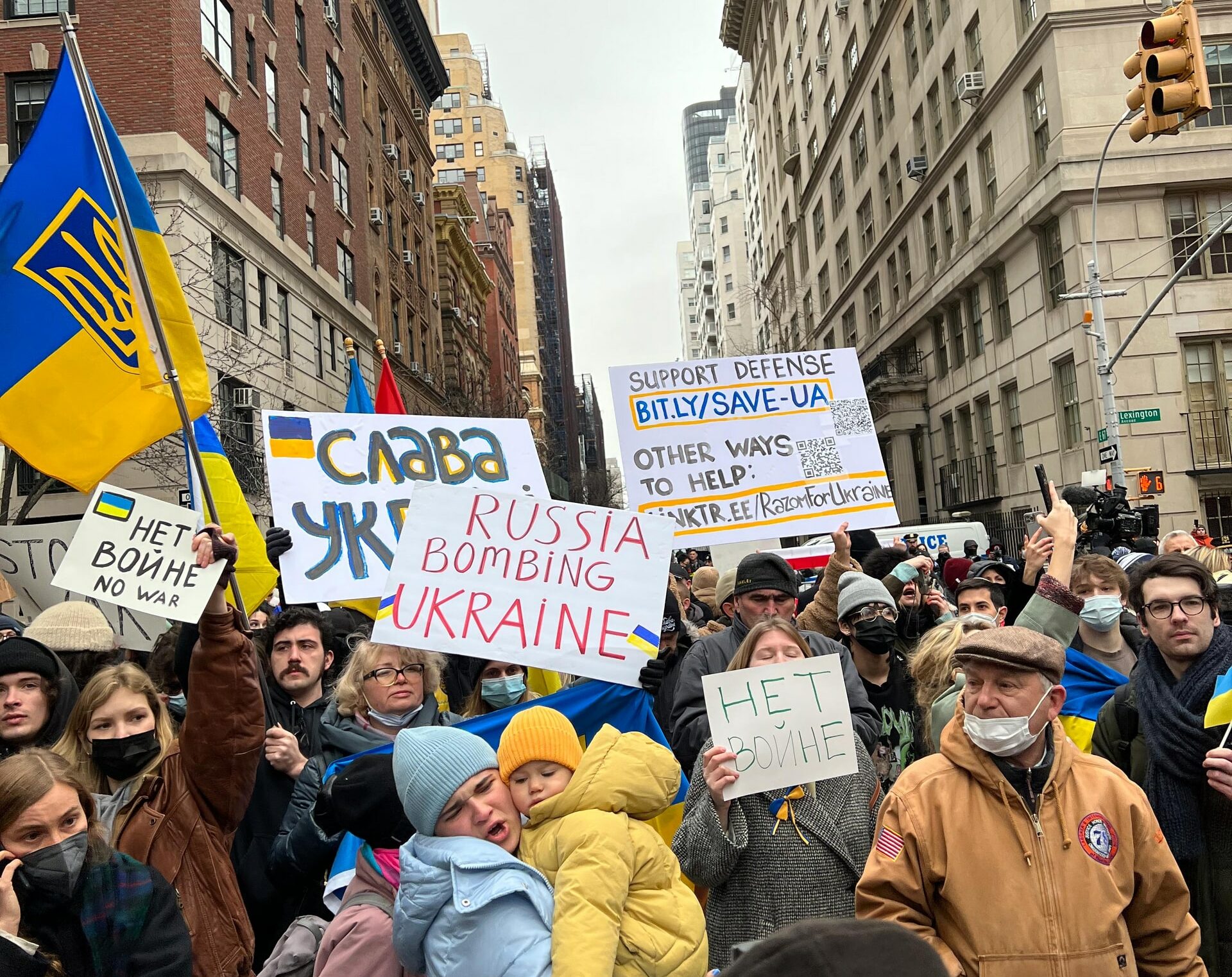I’ll tell you what Putin didn’t understand about Ukraine

Putin imagined that Ukraine was a completely different country than it turned out to be. Pierluigi Mennitti's article from Berlin
Veronika is a 26-year-old Ukrainian freelance producer , who landed a few hours ago on platform 8 of Berlin central station, where she was welcomed by the large group of volunteers who continuously assist refugees arriving from Lviv. Time to refresh and find a minimum sense of balance and the first request was to have an Internet connection. Veronika was also surprised that, in the main railway station encountered on the line from Ukraine to the West, there was no free wi-fi connection available, as in Warsaw, where she had made an intermediate stop. She really needed the internet, because in the laptop she had brought with her, she still had a job to deliver to an English client: she absolutely had to do it now that she will need money to face her new adventure as a refugee in a foreign land.
The story was told to me by one of the German assistants who, thanks to her knowledge of English and Russian, was involved in the teams of volunteers involved in what became one of the European rear of the Russian-Ukrainian war, the glass and steel railway station at two steps from the Berlin Chancellery. Recently built, completed for the 2006 World Cup in Germany, but still lacking a free Internet service.
In the coming days Veronika and the hundreds of thousands of refugees will have other daily urgencies and far more serious uncertainties to deal with than those of a reliable internet connection in Germany. But the anecdote tells a mirror of that Ukraine on the run from its own country which, due to its modernity, contradicts the image that Vladimir Putin and his magic circle must have harbored in all these years, in the enclosure of the rooms of an increasingly powerful self-referential. A country that has grown despite the economic seesaw of the last two decades and the political instability of a democracy vitiated by the arrogance of the oligarchic powers, which have opposed each other and superimposed on revolutions and restorations, playing with the destinies of their own people. A country in which a middle class has nevertheless come forward, establishing increasingly solid social and economic relations with what we call the West, because in the end, societies are always moving ahead of politics and economics, sometimes even despite one and the other.
If Putin and his people had ever bothered to make at least one trip to the urban universe of the new Ukraine, perhaps they would have thought twice about waging a Chechnya-style war in the heart of Europe. But perhaps it would have been enough if they had taken a look at the television series starring Volodymyr Zelensky, when he was still a comedian, and at the "Western" modernity projected by that serial comedy, mirror of an increasingly distant country from the nineteenth-century junk now in vogue in the Kremlin. "Ukrainians today seem to orient themselves more towards the idea that a nation is not based on a clear history of the past, but on a direct action towards the future", wrote the American historian Timothy Snyder, a great expert on Central and Eastern Europe. .
Of course, the young and creative middle class of the big cities, from Kiev to Lviv, from Odessa to Dnipro, to the remote east of Kharkiv and Mariupol is only a part of Ukraine. Then there are the extensive rural districts, to the west and even further to the east, where Russian is the primary language and Moscow was considered a kind of twin capital together with Kiev. But today the mood has changed there too, at least since 2014, when Putin annexed Crimea. Here, too, it was enough to access some information taken outside the walls: perhaps an embassy report or a cable from the Russian services reporting to the Kremlin leaders the results of a study by the Swiss University of St. Gallen, which described the rapid public opinion of the eastern Ukrainian regions shifting towards the NATO umbrella after the taking of Crimea and the war in Donbass. Before that, the majority of Ukrainians were mostly against joining the Atlantic Alliance, then the ties turned upside down.
But faced with a circle of power that shrinks and closes, even ambassadors and spies tell the boss what the boss wants to hear. Communication on that endless table in the Kremlin must have become more and more difficult, the advisers have become more and more voiceless, when – as the humiliation of the head of the live TV services has shown – they simply did not get along. The result is that Putin has started a disproportionate war, imagining that he can close it in a few days and thus put on the table the fait accompli of an occupied country with a puppet government. Two weeks later, it is clear that the war can win it, perhaps, only at the cost of a Chechen-style march. And that the fearful West has given itself an alarm. Because sooner or later there comes a time when even democracies are able to say: too much is too much, now enough. And that moment seems to have come.
This is a machine translation from Italian language of a post published on Start Magazine at the URL https://www.startmag.it/mondo/ucraina-cosa-putin-non-ha-capito/ on Sat, 19 Mar 2022 07:11:25 +0000.
